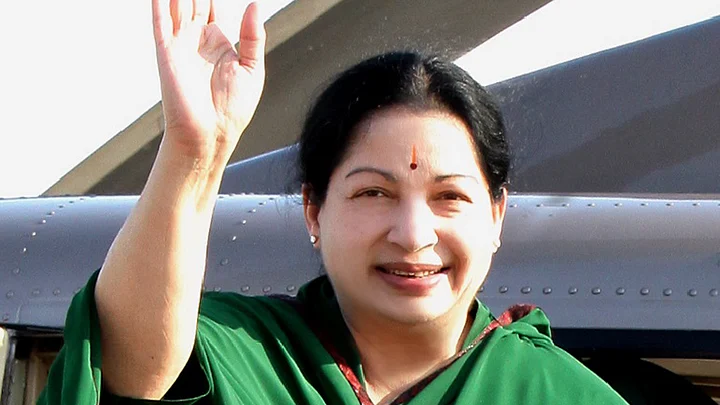September, the ninth month in the Gregorian calendar, seems a worrisome month for Tamil Nadu Chief Minister Jayalalithaa. The 68-year-old leader was admitted to the Apollo Hospital in Chennai late on 22 September with complaints of fever and dehydration. Two weeks into her hospitalisation, hundreds of her supporters across the state continue to pray for her speedy recovery.
As history remembers, Jayalalithaa has seen her political fortunes slide in past Septembers as well.
21 September 2001
On 21 September 2001, the Supreme Court unseated Jayalalithaa as Chief Minister, ordering that her appointment was “not legal and valid”. The AIADMK leader had been found guilty just 11 months earlier, in the TANSI land deal case by a special court in Chennai. Having been sentenced to three years rigorous imprisonment, Jayalalithaa was barred from contesting the 2001 Assembly Elections in Tamil Nadu.
Despite the bar on her contesting, Jayalalithaa campaigned extensively in the run-up to the 2001 polls. The AIADMK front routed the DMK, winning 196 out of 234 seats.
“People voted to make me Chief Minister. If I don’t become the Chief Minister, it would amount to disrespect for the people’s mandate,” declared Jayalalithaa soon after the AIADMK victory.
Her MLAs then nominated the AIADMK supremo as Chief Minister, returning her to the Fort St George for a second term.
But four months after Governor Fatima Beevi had sworn Jayalalithaa in as Chief Minister, a five-judge Constitution bench ordered:
A person who is convicted for a criminal offence and sentenced to imprisonment for a period of not less than two years cannot be appointed the Chief Minister of a State under Article 164 (1) read with (4) and cannot continue to function as such.
Calling her appointment as Chief Minister a “clear infringement” of the Constitution, the apex court ruled that Jayalalithaa could not continue to hold office.
The September 2001 judgement, however, proved to be a temporary setback for the AIADMK general secretary. The Madras High Court acquitted Jayalalithaa in the TANSI case in December that year. She was soon elected to the Assembly from Andipatti constituency and was sworn in as Chief Minister on 2 March 2002.

27 September 2014
Thirteen years after being unseated by the Supreme Court, Jayalalithaa earned the dubious distinction of becoming the first sitting Chief Minister to be disqualified as a legislator when she was convicted in the disproportionate assets case in 2014. The judgement in the 18-year-old case was pronounced on 27 September, with the special court judge John Michael Cunha finding Jayalalithaa guilty of corruption.
The special court in Bengaluru sentenced Jayalalithaa to four years in prison and imposed a fine of Rs 100 crore for accumulating wealth disproportionate to her known source of income. The judge also found her associates Sasikala Natarajan, J Elavarasi and V Sudhakaran guilty and sentenced each of them to four years’ imprisonment with a fine of Rs 10 crore.
The 27 September judgement appeared to signal the end of her glittering political career, with Jayalalithaa being barred from contesting elections for 10 years. Then 66-years-old, Jayalalithaa spent three weeks at the Parappana Agrahara Central Prison in Bengaluru before she returned to her Poes Garden residence in Chennai on conditional bail.
Eight months later, on 11 May 2015, the Karnataka High Court acquitted Jayalalithaa and her three associates. The AIADMK supremo, who had spent months camped inside her Chennai home, rose like a phoenix from the ashes. The order set aside her conviction, paving the way for her return to Tamil Nadu politics and to the Chief Minister’s chair.
Today, as Jayalalithaa receives treatment at the Chennai hospital, her party workers hope and pray that just as her political fortunes swung in her favour after terrible September crises, their Amma’s health will turn around this time as well.
(At The Quint, we question everything. Play an active role in shaping our journalism by becoming a member today.)
